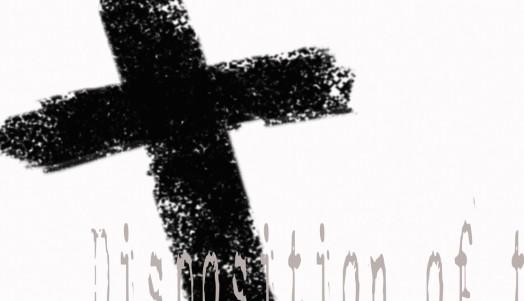
2 minute read
In the Beginning: The Book of John
(John 10:19-30[HCSB])
19 Again a division took place among the Jews because of these words. 20 Many of them were saying, “He has a demon and He’s crazy! Why do you listen to Him?
Advertisement
” 21 Others were saying, “These aren’t the words of someone demon-possessed. Can a demon open the eyes of the blind? ”
22 Then the Festival of Dedication took place in Jerusalem, and it was winter. 23 Jesus was walking in the temple complex in Solomon’s Colonnade 24 Then the Jews surrounded Him and asked, “How long are You going to keep us in suspense? If You are the Messiah, tell us plainly.”
25 “I did tell you and you don’t believe,” Jesus answered them. “The works that I do in My Father’s name testify about Me. 26 But you don’t believe because you are not My sheep. 27 My sheep hear My voice, I know them, and they follow Me. 28 I give them eternal life, and they will never perish ever! No one will snatch them out of My hand. 29 My Father, who has given them to Me, is greater than all. No one is able to snatch them out of the Father’s hand. 30 The Father and I are one.”
Again a division
The “division” referred to in verse 19 did not take place among believers themselves, who were persecuted by Rome and simply looking for hope; but among those who were the Pharisees, Sadducees, Priests, and the other Jewish authorities. It appears that they were secretly, and sometimes openly, at odds. And as Nicodemus’ night visit suggests, some believed Jesus to be more than an iterant rabbi.
Referencing verses 20-21, it is understood from OT Scripture that demons cannot give sight to the blind, only God can perform such miracles; darkness can, however, blind those with sight. See Psalms 146:8 and Exodus 4:11. Jesus’ healing of the blind lends its own credibility to His assertion in verses 25-28.
It is strange how those who receive Jesus are utterly transformed, and those who do not cannot possibly understand the transformation. There are times when Calvinism seems like the easiest explanation since the very spirit of the believer is either burdened for Jesus or it is not. As “free” as freewill is, it is the most difficult and demanding decision-making we will ever face as individuals, or as a body.
I think that as obvious as Jesus’ voice is to His sheep, the real challenge is to, indeed, be a sheep and follow the Shepherd every day. Believing is more than casual commitment or periodic emotional outburst. It is the response of a soul to its source; a true desperation for a personal relationship with our Creator God.
Sheep who quit listening fall astray, and are often drowned under their own wooly weight.
Note: the timing of “winter” is a reference to December.




